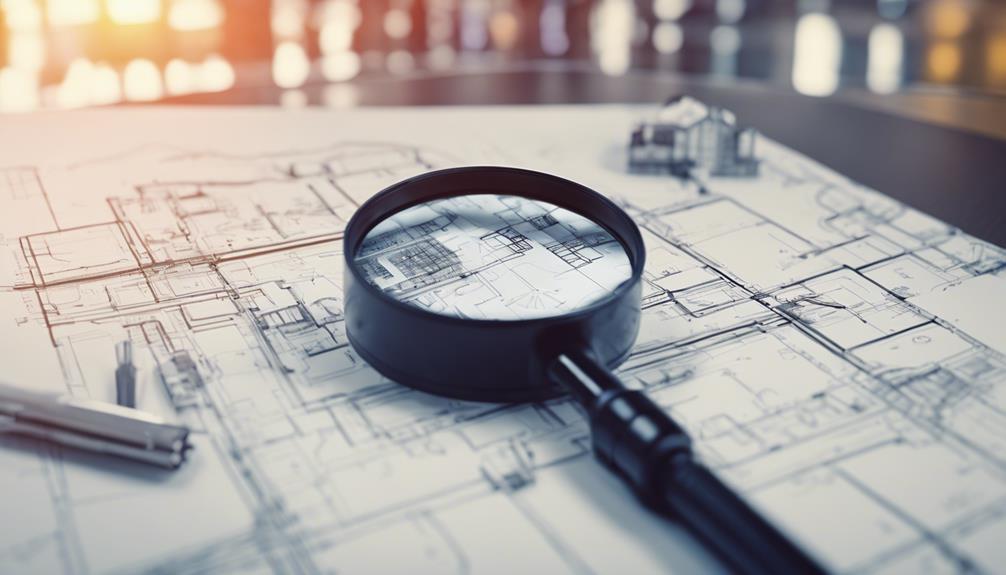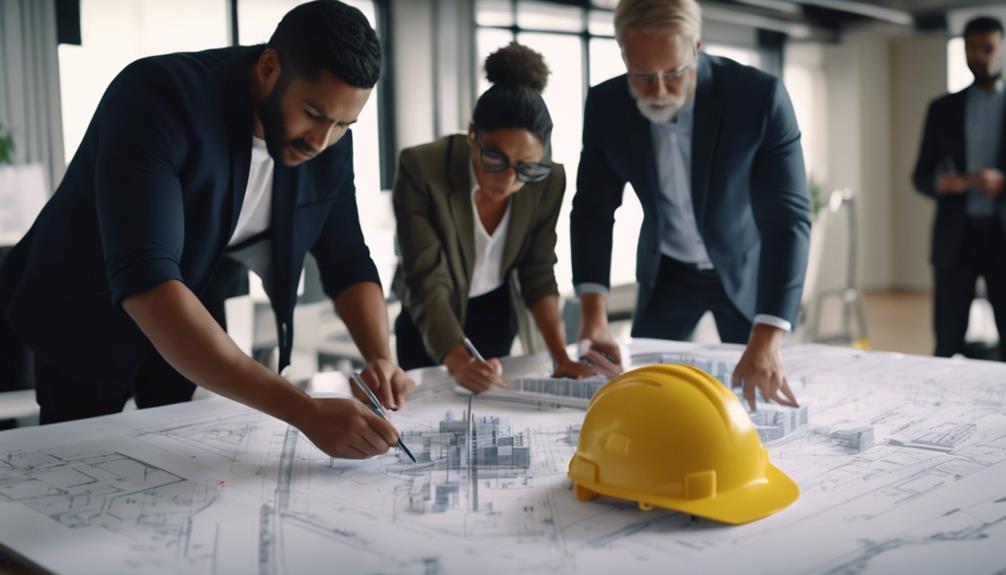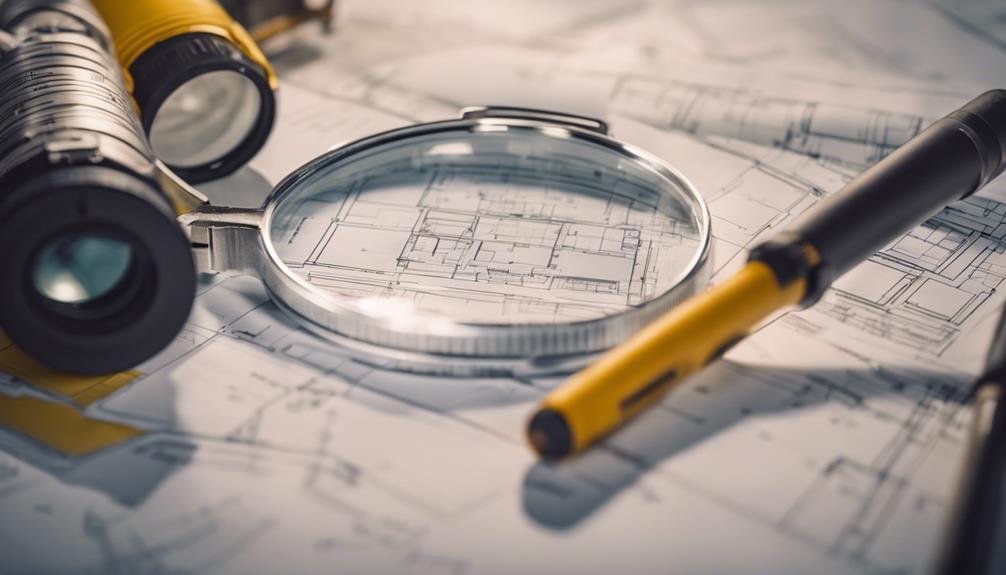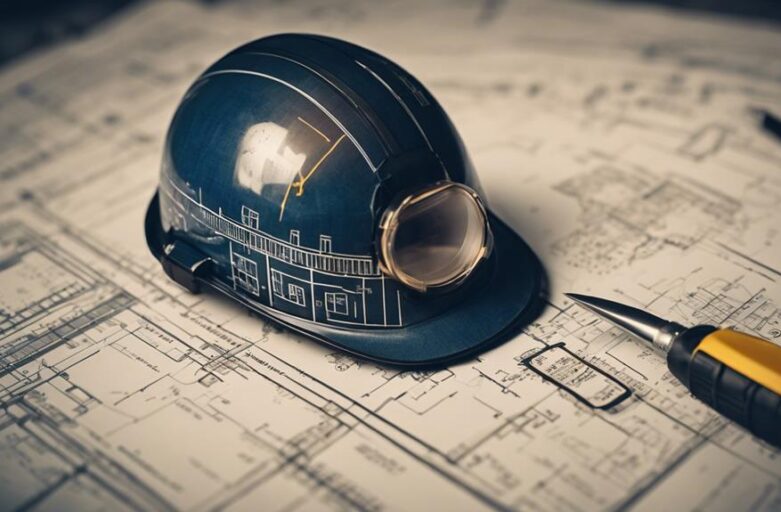Building codes are super important! Think of them as a safety net that helps make sure your projects are strong and last a long time. Following these codes isn't just about passing a check—it's all about safety, stopping accidents, and keeping our communities safe and sound.
Skilled experts use these guidelines to check if your building matches up to certain standards. Remember, keeping up with changes in these codes and working with experts can help you build even stronger, more efficient buildings. In short, you're not just building, you're creating safe, lasting spaces.
Codes are like a guide to safer buildings—there's always more to learn!
Key Takeaways
- Building inspection codes are like safety plans. They make sure buildings are built right and safe.
- Checks based on these codes help stop accidents and keep buildings safe for a long time.
- People who know about these codes use them to make sure buildings are built correctly. If a building breaks a code, they fix it.
- Following these codes is really important for keeping people safe, making sure buildings last, and keeping houses worth a lot of money.
- These codes are updated often, which helps us build stronger, safer, and more energy-saving buildings.
The Origin of Building Codes
Let's take a trip back in time and explore building codes. These are rules that tell us how to build things so they're safe and easy to use. They've a long history that goes all the way back to ancient times, like in Mesopotamia. There, they'd something known as the Code of Hammurabi.
Now, jump to 1871. A huge fire broke out in Chicago. It was so bad that it made people rethink how we build things. This led to stricter building codes focused on preventing fires. Today, you're part of this story of strength and change.
Move forward to the early 1900s, and we're introduced to the National Building Code. This was a big change. It looked at making buildings strong, saving energy, and making sure everyone could use them. Your buildings today are built this way because of these rules.
Then, groups like the International Code Council started making model codes. These are rules that can be used everywhere, making sure everyone gets a fair deal. These codes make our buildings safe and high-quality. So, let's keep building and learning from our past, aiming to make better, safer places for everyone.
Roles of Building Inspection Codes
Building inspection codes are like superheroes of the construction world. They help make sure our buildings are safe and follow all the important rules. Without them, it would be like trying to drive a car without a seatbelt.
Just think about it – no inspection codes means no safety checks. Problems with buildings could be overlooked and that could be dangerous for the people inside. Thankfully, trained inspectors use these codes like a checklist, making sure every building is up to scratch.
Following these codes isn't just a tick in the box; it's how we all work together to keep our buildings safe. Regular checks based on these codes help stop accidents or issues from happening by finding problems early. They're like the watchful eyes of our buildings, always looking out for anything that might go wrong.
In short, these codes are super important for safety and making sure everything is done right when we build. So, the next time you hear about a building inspection, remember the crucial job these codes do to keep us safe.
Importance of Compliance and Permits

Getting permits and following building rules are like safety life jackets when you're creating or fixing a building. They make sure your property is safe, legal, and valuable. This process includes sharing your building plans with authorities who check if your plans follow the rules.
Next comes inspections, which are like extra safety checks. These confirm that your building project sticks to the approved plans and meets safety rules. This isn't just about ticking off a checklist. It's about making sure the community you live in is safe.
If you ignore getting permits, you could face problems. You could get fines, legal troubles, and your building could even become dangerous. So, it's really important not to skip this step.
Managing Code Updates Effectively
Keeping up with the latest changes in building codes is a key part of your job. It helps you build structures that are safe, work well, and follow the rules.
You're not just learning about these changes, but also putting them into action. Let's chat about how you can handle this task well while making sure your buildings are the best they can be.
Navigating Recent Code Changes
Understanding new building rules isn't just about doing things right. It's a chance for you to use new tools and safety measures that make your building projects stronger, safer, more energy-saving, and more accessible for everyone. Each time there's a new update, you're not just keeping the building strong, you're also making it safer from fire, improving its electrical system, and making it a safer, more efficient place.
Stay in the know, work with professionals who have licenses, and remember: these changes are chances to make things better, not problems. Here's a quick chart to remember:
| What to Focus on | How it Helps |
|---|---|
| Fire Safety | Makes things safer |
| Building Strength | Makes buildings last longer |
| Electrical Systems | Saves energy |
| Accessibility | Includes everyone |
You're part of this forward-thinking group of builders. Accept the change, and let's make things better, together.
Implementing Updates Successfully
You're like a leader of change when you put new coding updates into action. These changes happen every three years. To make them work, you need to know and use new technologies and safety rules.
Think of local building codes as your roadmap. These codes change often, showing how important they're in our towns and cities.
Being part of groups like the ICC can keep you in the loop about these changes. This way, your projects stay safe. When you keep up with these updates, you're not just following rules. You're making your town or city safer and healthier.
Collaboration With Building Professionals

Teaming up with building experts is like having a superpower. They know all the tricky parts about following building rules.
Together, you can tackle these rules from the start, make getting permits easier, and ensure your project ticks all the boxes.
Understanding Professional Collaboration
To understand building inspection codes better, it's a good idea to work with experienced architects, engineers, and other experts. This teamwork helps you deal with code problems directly and keeps your project top-notch. These experts can spot possible code issues early, making the approval process easier and making sure you follow all the rules.
They give useful advice and clever ways to handle code problems throughout your project. Architects and engineers guide you on how to meet code rules while keeping the building strong. Working with these experts doesn't just help you handle code problems, it also improves your project's quality and rule-following. Working together with these experts is really the secret to doing well in building projects.
Importance of Expert Advice
When you're starting a building project, it's really important to ask for help from professionals who know a lot about construction. They're like guides on a tricky hike. They know the map of building rules and can help make sure your project follows all the safety rules. Imagine these experts like a GPS for construction, helping you move in the right direction.
These experts can spot any issues early on, like a scout spotting a bear on a trail. This helps you get the necessary permissions more easily and without any major hiccups. It's like they've a flashlight to show you the way through a dark forest of complex rules.
They can also suggest smart solutions for hard-to-solve problems that might pop up while you're building. Never think that asking for expert advice isn't important. It's like the secret ingredient in a recipe that makes your construction project strong, safe, and rule-following. It's the difference between a wobbly treehouse and a sturdy skyscraper.
Navigating Building Code Compliance
Alright, let's get our expert-provided torch and team up with professionals like architects and engineers. We're not just building, we're building right. These experts help us understand building rules. They guide us through rules, check we're doing things right, and spot any possible building problems.
Building isn't just about making a structure, it's about keeping people safe. Building checks are really important to make sure everyone who uses the building will be safe. So, let's trust these experts and build safe, secure, and rule-following buildings and communities. We're all in this together!
The Impact of Building Codes on Safety

Building codes play a big role in making sure our buildings are safe. They set up tough rules for how strong a building should be, how it should be protected from fire, and how the electricity should be set up. This helps a lot in keeping us safe from accidents, injuries, and damage to the building.
These codes are super important in construction. They tell us how a building should be designed, what kind of materials to use, and how to do the work right.
We need to follow these codes. This is super important for everyone's health and safety. Building inspections are how we make sure these rules are being followed. If anything's not right, these inspections help to fix the problems. They're like safety guards, checking that buildings can handle different weather and usage without being dangerous.
Not following these codes isn't okay. It's the difference between a safe home or office and a place that could be dangerous. Building codes aren't just about paperwork. They're like safety instructions, helping to keep us safe.
Conclusion
Building inspection codes may seem like a hassle, but they're really important. They make sure your buildings are safe and up-to-date. Following these rules isn't just about not getting in trouble, it's about making sure your work is solid.
It's essential to work closely with experts and keep up with any changes. These aren't just suggestions, they're shields – keeping you and everyone who enters your building safe.


